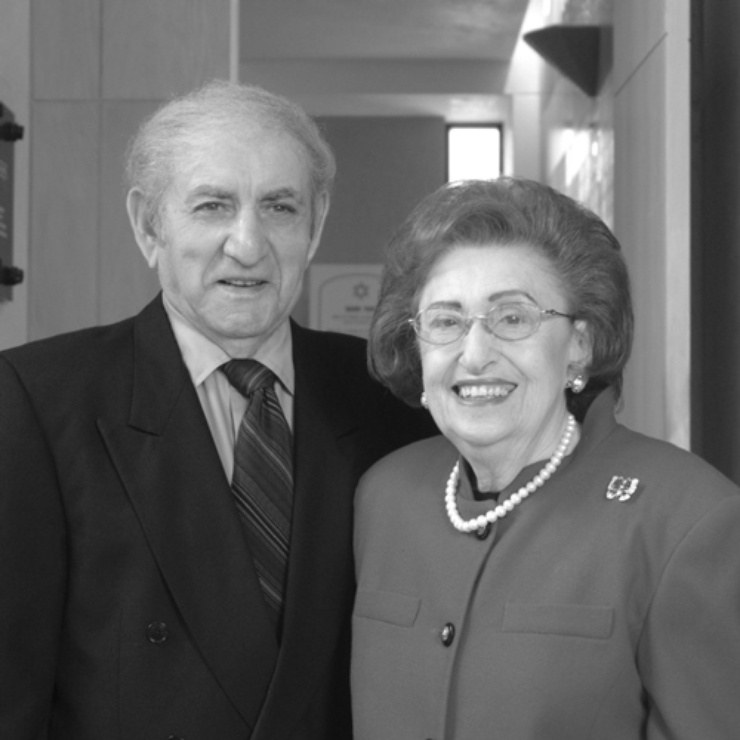-
 Louise with her husband Rubin at Holocaust Museum Houston in 2006. Credit: Holocaust Museum Houston/Mike Marvins
Louise with her husband Rubin at Holocaust Museum Houston in 2006. Credit: Holocaust Museum Houston/Mike Marvins
Born: Lusia Stopnicka
Kraków, Poland
April 14, 1925
Louise Joskowitz remembered a pleasant life in Kraków, Poland with her parents and her brother Sol Stopnicki. “Everything was nice until September 1, 1939,” she said. “But when Germany invaded Poland, everything started going upside down and changing.” As soon as Poland fell to Germany, Jews were singled out for abuse. Beaten and brutalized, they were constantly hungry as food grew scarce. Louise’s family woke before dawn to join the long lines for food and necessary supplies.
In March 1941, Louise and her family were confined to the Kraków ghetto. Initially, they felt safe because as a scrap metal dealer Louise’s father was “useful” to the Germans. He often learned, through connections, when the Jews were scheduled to be rounded up and shipped from the ghetto. At those times the family hid in an attic. “We could look out from the little window and see all those SS men and trucks, and they were beating people, pushing them. . . . and they were taking them away,” recalled Louise. In March 1943, the Germans liquidated the Kraków Ghetto. Louise’s family was sent to the labor camp of Płaszów where the sadistic commandant, Amnon Göth, tortured and murdered captives at his whim.
In the summer of 1944, Louise’s mother was sent to Auschwitz and the following year her father was sent away. She never saw them again. As the pace of deportations began to pick up, Louise was put on a hot and crowded cattle car and taken from Płaszów to Auschwitz where she was selected for hard labor. She relied on her instinct to survive. “You had to know when to hide and try to take care of yourself because nobody else would,” she said. From Auschwitz Louise was sent to a factory near Dresden, where she was forced to make ammunition for the German war effort. Starving, she grew weaker by the day. Only the sounds of Allied bombs falling nearby gave her hope. In April 1945, as Russian troops approached, Louise and the other emaciated inmates were loaded onto cattle cars and taken to Theresienstadt, a ghetto and transit camp in Czechoslovakia.
After the Allies liberated Theresienstadt in May 1945, Louise was overjoyed to discover that her brother Sol had also survived. Decimated by typhus, he weighed only 95 pounds. Louise nursed him back to health and they headed for a displaced persons camp in Landsberg, Germany. There, Louise met her future husband, Rubin Joskowitz, who had survived Dachau and Gross Rosen before he was liberated from a death march. Everyone else in his family had been murdered. Rubin and Louise married in 1947 and their daughter Pepi was born in 1949. Later that year the family came to Houston where Rubin worked for Brochstein’s Inc., a manufacturer of cabinets and interior fixtures. He and Louise also opened and operated several grocery stores. Louise and Rubin had a second daughter, Genia, and two grandsons, Joshua Brownstein and Aaron Joskowitz.
Parents:
Jacob Stopnicki, d. Mauthausen, 1944
Pesla Bucheister Stopnicki, d. Auschwitz, 1944
Siblings:
Sol Stopnicki, survived
